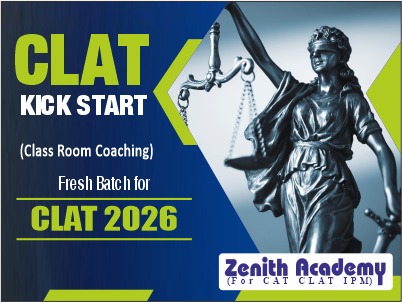P.I.
Quick Links
Personal Interview ( PI )
|
Preparing for an Interview is like making a plan to sell yourself …… Be aware of your strengths and weaknesses. Develop clearly the areas of strengths, which could demonstrate suitability for pursuing a management course, and look at ways to overcome weaknesses. It would be worthwhile to let these be known to the panel at an approximate time during the interview. |
Prepare yourself for an Interview
STEP :1
STARTING RIGHT – Making the right first impression:
Remember that you never get a second chance to make a first impression. There’s an adage “Outcomes of interviews are decided in the first 5 minutes” and the impression you make in the first 5 minutes” and the impression you make in the first minute is all superficial, such as the way you are dressed, your demeanor, your social skills, the degree of politeness you display etc.
At this instant, we are sure some of you are sure you look best in a red T-shirt and some old, suck for you, faded denims. There is a pretty broad line between a wardrobe that is idiosyncratic and one that is effective. So be on the right side of that line. You will be playing the interviewers game, so if you want to get selected, you need to play by their rules.
For men, people say a navy blue wool blend suit, with a tasar silk maroon tie, white shirt, navy blue socks and black conservative lace ups with low heels are de rigueur. We would advise against it, if you were not comfortable to wear such pairs and feel conscious of their presence on your skin. Also wear socks that cover your legs during the interview, you do not exhibit your childhood scars.
Girls, have an array of choices and more flexibility than men in their choice of business attire, still it doesn’t grant them complete freedom in an interview situation. They should stick to dresses or suites in hutched colours and non-shiny fabrics. Women should also steer clear of what can be considered provocative clothing-short skirts, skin fitted dresses and low cut tops. Also avoid clunky, large, or noisy gypsy fashion jewelry, open toed shoes, spiked noisy heels etc. an
Ally McBeal look is definitely preferred above a La Julia Roberts in the first quarter of ‘Pretty Woman’.
The second stage of the selection process addresses a much larger issue than just a Personal Interview and a Group Discussion. Literally, the whole personality of a student is under the scanner. B-schools employ a number of tools in assessing a candidate’s personality; GDs, Personal Interviews, Extempore, WAT, TAT etc merely represent a few means.
STEP :2
IN A PERSONAL INTERVIEW, BELIEVE THAT THE INTERVIEWER IS YOUR UNCLE!
Personal Interview:
The moment we hear the term ‘Interview’ and most of us get afflicted by the ‘Lady Mac Beth syndrome’, constantly rubbing our plams on thighs in the hope of drying them before shaking the interviewer’s hands. The nervous dhak-dhak-dhak of our hearts becomes almost audible. A reason could be that we are mote used to paper ad pen kind of exams and here we are being tested verbally by a group of strangers who probably can read out minds without psychotropic drugs and third degree torture. They have been long enough at this work to make them immaculate. So all it needs is mental preparation by going through a few mock-simulated interviews and learning from them. Rather than believing that the interviewer is a villain out to reject you, believe that he is a long lost uncle, looking for reason to select you.
Another reason for our quandary is that we fear the interview panel may ask us questions may be asked.
Remember the written exam is a screening process to weed out the non-serious lot, while interview and GDs are for selecting the best lot. So start on a positive note if you have cleared the written exam stage.
STEP :3
IT CAN’T BE SO SIMPLE, BUT IT IS!
Your aptitude and knowledge, by and large, have been tested in the written exam. In contrast, an interview basically tests you on two things:
{a} Ability to think logically
{b} Commitment
In your actual work milieu, you will come across a lot of unforeseen circumstances, which can be handled effectively by logical thinking. They are looking for students who can think on their feet. More so even if you may do things just for the heck of it and not give it your best shot. Its here that commitment counts.
So how is commitment tested? “Through academics” would be your most probable answer. No! in our Indian education system, we do not get a chance to exercise our choices, our class X board performance decides the stream we get at +2 stage-excellent and it would be science and hopeless performance leads to humanities and so on.
So academics cannot be a likely scenario for testing commitment. Knowledge in other areas like hobbies, passions and sports where we actively participate out of choice indicates level of commitment. If movies are your passion, your level of commitment can be tested by knowledge of movies and you should be able to answer 80% of all questions asked about movies. If this is not the case, then you need to cull more information on movies.
STEP :4
PREPARATION:
So where do we start preparing for interviews?
Unlike written exam, which tries to test you on all possible areas, an interview is usually on your strengths. I am not talking about stress interviews here. They will be dealt with later.
Start with identifying 5-areas of strength. You need to comfortable in these areas and be able to prove your commitment if questioned on them. Work on honing them. If you have put Indian classical music in your list then you need to know the impact of the Banarsi Gharana of music on the Sufiana Kalam. Believe us, students have walked through IIM-A interviews just by talking about their hobbies as idiosyncratic as Guns to Quentin Tarantino movies to watching people on the street!
Similarly list 5-areas in which you are comfortable. Work on getting familiar with them and work on ways of steering the interviewers away from them. This leads us to the trick of ‘Leading the interview’ and making the interview panel ask us questions on our areas of comfort and strength.
STEP :5
HOW TO ‘LEAD THE INTERVIEW’ OR CONVERT INTERVIEWERS TO ZOMBIES:
Interviewers can ask you pointed questions that can be answered narrowly in a word or two, for example ‘What would you like to have tea or coffee’? There are called as closed-ended questions. They can have only one answer.
The other type termed ‘Open ended questions’ allow you to talk… and talk… and talk…. about almost anything you want. There questions come in many shapes and sizes and packaged in various hues. An example is “How do you handle yourself when you are having a conflict with someone? Are you confrontational? Do you avoid that person? Why? How do you think, you’ll behave when you Have a problem with a co-worker?”
A thin hazy line separates there two types of questions and it can be easily breached from either side.
Naturally, the Open-ended questions are better for you to sell yourself though you still need to prepare for them.
Another expertise to acquire is the ability to convert a close needed question into an open-ended question. Say if they ask me “Would you like to have tea or coffee?” Typical close-ended straightjacked question. I would reply –Bo, I would prefer having tea. Tea has thephilline which agrees with my system while the caffeine in coffee makes me too wide eyed for my comfort’. Most probably they have not heard the term ‘Theophilline’ and would ask me about it {By the way have you heard it anywhere?}. What I achieved here is to lead the interview towards my area of strength-Biochemistry. In this area, I don’t worry about the best of quivers. I can handle it.
Typically, interviews initiate with an open-ended general question. ‘Introduce yourself is a hot favorite. The purpose of this question is to make you more comfortable so that you can reflect your true potential. Interview panel understands that the candidate is under a lot of pressure and is suffering from a ‘Performance syndrome’. He has to be put at ease, and once the ice breaks, the stress component of the interview van follow up later if it is mandatory.
Lets look at the “Introduce yourself’ part. When you introduce yourself, you can try out a few areas like:
|
Name , Family, Academics Job ,Career Objective , Strength/Weakness Value System , Achievements, Why MBA Likes/Dislike ,Idol , Type of person Hobby/Pastimes/ Extra curricular activities
|
STEP :6
TALK TO YOUR UNCLE ON THE TOPICS YOU WANT TO TALK ABOUT:
During your introduction, you can speak on 3 or 4 areas depending on your comfort levels and the value you can add to them, let’s look at a few of them.
1. Name:
the interview panel already knows it, so uncles and until you can add value to yourself there’s no need to utter it. Say if your name is ‘Dhamini’ you could start with “My name is Dhamini” which in Swahili stands for Priestess. The name has brushed off on my nature as well. I am good at interpersonal skills and pretty composed under pressure.
2. Family background:
a name is usually followed by something about family background. If you can say {honestly} that you came from a well-educated family, which makes you pursue an MBA, then you are selling your strong roots in education.
3. Place of origin:
Mentioning your place of origin can add value to you as well, for example, if you say you were brought up at various places due to your father’s transferable job. You need to support this statement by mentioning that you have good interpersonal skills as you had to make friendships at new schools and places. If you come from a remote village, which cannot seem to produce IITians then it displays your industriousness.
4. Academic background:
Most students devote the largest part of their introduction to their academic background even though they are least comfortable in it.
Keep in mind-Just open small windows of opportunity; don’t open large gates if you cannot handle it.
If you speak at length about academics in your introduction, then start expecting a lot of questions on it. If you do not want your interview to focus on academics, then just a single line about your last qualification will do. This is part of ‘Leading the interview’.
Also opening small windows means that you only speak about specific areas of strength. So instead of just mentioning-I am an Electric Engineer from DCE, you should lead the interview into your areas of strength by adding ‘My area of interest is Embedded Chips’.
5. Interest/Pass-times/Hobbies/Extra curricular activities:
A lost of aspirants get puzzled about the hobby to be mentioned at the time of filling up the forms or interviews. Nowadays, the pace of life militates against pursuing a stereotypical hobby like stamp or coin collection. So anything you love to do, when time permits you, is a hobby. Since you do it out of choice, you end up gaining a lot of ‘Incidental knowledge’ about it.
Suppose two students, one a cricket lover and another who isn’t into cricket read an article on cricket. The cricket lover will read faster, understand more and will retain more. While for the other guy it’s vice versa. So, interests and hobbies are areas where a persons’ level of commitment is shown up.
6. Favorite subject:
Academics does not have a “Exclusivity contract” on the usage of this term. Your favorite subject could be cricket, video games, e-chatting or plain politics. But before uttering your area take care of two things.
One-do you know enough about it?
Two-how does it make you a better candidate?
Also support your statements with logical reasons.
7. Career objective:
Career objective is basically where do you see yourself 5-10 years down the line. For managers two pet goals could be to become an Entrepreneur or head a leading organization. MBA can only be one of the means to achieve your career objective. So if you cannot make it to a good B-School, your contingency plans may go awry. Get them in place.
8. Value system:
Honestly, Integrity, Sense of fair play are the much blown values inculcated by our parents. But if you mention them, then get ready for a “Situational Interview” where they will give you the role of a CEO of a manufacturing organization where power connection has been snapped by a bureaucrat looking for a bribe and the production has come to a halt. Don’t mention legal routes to solve this problem as every day you are losing money due to your values. Let’s get pragmatic. Work experience normally gives you the maturity to handle such questions without preparation.
9. Idol:
When you mention that Richard Branson is your idol, then the focus is not on the person but on the qualities that you find desirable in him. Idol may be a person unknown to the world, could be your father, mother, teacher or just anyone. If your idol is a famous person then your panel may ask very specific questions on him. So you can even play safe by putting your parents in that slot but take care that sufficient knowledge of the idol is a must.
10. Achievement/Honours:
Till the graduation stage, we may not have achievements to write home about. Moreover, public recognition and acceptance have permanent importance in our definition of achievements. Bear in mind-Anything that was not expected of you but done by you is an achievement. It could be as simple a battle as passing in a subject that you were hopeless in.
You can even talk to your uncle on the topics you do want to talk about.
Stress Interview Component:
Stress Interview can blow anyone away. Accept it. First learn to identify its symptoms:
01. They ask you a string of questions and do not let you lead the interview. Its almost as if they have an agenda to follow.
02. If questions are fired at you like bullets from a machinegun, you haven’t answered one question and other follows it.
03. You haven’t answered one interviewers question and another interviewer starts with.
04. They ask you very pointed closed ended questions focusing on a technical aspect.
05. They ask you very abstract questions like “Why does a ball roll?” or cross-question you on little details.
How to handle Stress Interview:
01. Etch it up in your mind that every question in an interview does not demand an answer.
02. They are testing your nerves, so accept it and just let it roll.
03. Mock-Simulated Interviews are very helpful, but do it with strangers who are pretty assertive and make you immune to such situations. After the Mock-Simulated Interview go for some light hearted talk with them, take feedback and work on it.
04. The Interview panels going for these tricks are not your enemies, they hardly know you. Let this sink into your head and relax.
STEP :7
BODY SEMANTICS AND INTERVIEWS:
Our body language conveys more information than what we speak. Body language has evolved over thousands of generations and has helped man survive and master the earth. We get a lot of body language cues in our day-to-day life without any sincere focus on them. If someone always meets you with a frown on his face, it’s pretty sure you will never like the guy. Let’s look at a few important aspects only:
Oral region:
Check out a child telling a lie, she’ll always cover her mouth with her hands after that. When you tell a lie or are unsure then there is an itch/urge to touch the region of our lips. Adults may not cover their mouth but may not touch a lip or play around with the nose. The person seeing it will get the impression that you are either lying or are not sure. So check the urge to touch this region during an interview.
Eye contact:
Maintaining eye contact with the interviewers is a sign of your confidence, comfort levels and assertiveness. The trick is not to overdo it. Take care that during interview, you maintain eye contact not only with the person questioning you but also with other members of the panel so they do not feed left out.
You can try these eye contact exercises if you really need them
1. Stare your dog out:
Yes, you might make him have second thoughts about you, but it’s easier to start with pets than humans. If you can’t even meet the dog’s gaze then you have serious insecurity problems.
2. Stare yourself out:
Look in the mirror and tell yourself out loud that you’re confident-really confident. See who blinks first.
1. Find a friend, you feel comfortable and take it in turns to ask and reply simple questions using eye contact. Then role-play mote difficult scenarios, like asking to borrow money or confessing to a ten-year affair with the friend’s partner.
2. When you greet someone new, hold eye contact all the way through the verbal greeting and don’t rush your words. Smile at the same time-you don’t want to come across as aggressive.
3. When you talk to colleagues call them by their names and don’t start speaking until they’ve met your gaze. {Don’t be too strict about this one-more nervous colleagues may feel uncomfortable-try it on the more confident types first.}
4. Accost people on the street and talk to them while maintaining eye contact. Later do it only with the really intimidating ones.
5. Smile-During an interview we have seen most students smile when they do not have answer to a particular question. It’s more of an embarrassed grin and badly timed. You need to enter with a cheerful smile and continue with it. There’s a lot riding more and more; it makes you more agreeable, acceptable and selectable.
6. Posture-During interview or GD, there are no hard and fast rules for the way you sit but let’s see implications of a few sitting styles.
You can sit in the American-figure of-4-style or with both feet on ground. Though care has to be taken that you do not open your legs too wide. It’s a very aggressive posture-It conveys I am making myself vulnerable to you-Hit me if you can.
Hands can be folded in the lap, closed or touching the table, but do not be fidgety and play with them-It conveys nervousness.
Don’t fold your hands across your chest. It’s a defensive posture conveying insecurity. And for God’s sake don’t bite on the nails.
You can lean ahead to indicate interest. On the contrary leaning back on the chair denotes a laid back attitude. Lots of students resort to it after giving a long and labored monologue in a GD, thinking that after their latest monologue they have already got selected.
|
Points to remember : Be brief and precise while answering the questions. Maintain your cheerfulness and enthusiasm throughout the period of your interview. Do not lie. If you are not sure of an answer, there is no harm in accepting the same, as honest people are always liked. Be humorous. It helps only till it has an element of grace and dignity attached to it. Be polite while answering the questions. Avoid slang. If you don’t understand the question. Ask the panel. There are many misconceptions about this as some feel; it is quite in place to question the panel. It is wrong. Mind, you are clarifying not questioning them. Be natural. There are many who try to put a self-imposed shadow upon them and sacrifice their originally in the process. Be an active listener. Good listening always helps one to better assimilate and put forth one’s idea more assertively and effectively. |
ALL THE BEST.
| Join Us For More detail and PI Classes |






